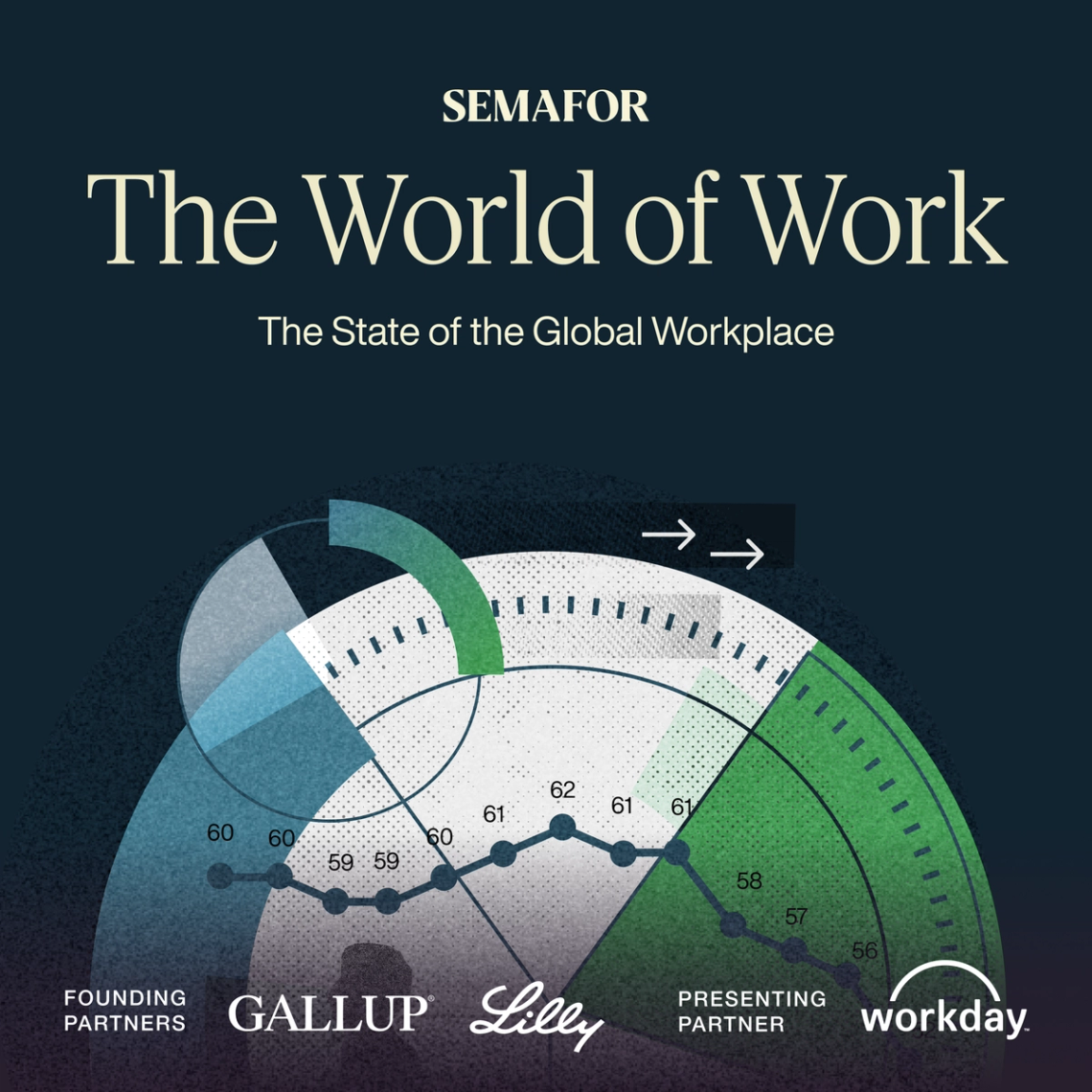| In this edition, Google’s strategy behind its new chief AI architect, and what Meta is really buying͏ ͏ ͏ ͏ ͏ ͏ |
 | Reed Albergotti |
|
A key point missing in the initial coverage of Meta’s blockbuster deal to acquire nearly half of Scale AI for $15 billion, which became clear when I heard something Monday night: A large portion of the money Meta is spending doubles as an advance on future services.
That’s a hugely important detail, because it shows this is not just an acqui-hire, like Microsoft’s absorption of Inflection AI or Amazon’s purchase of Adept employees.
The product that Meta is willing to pay so much for is data. Scale has been providing every frontier AI lab with highly specific, high-quality data for use in training and post-training large AI models.
And we’ve been writing about the race to build massive data centers that will require an enormous upgrade to the nation’s power grid. What’s been less obvious is that AI companies are also spending huge amounts of money to create more data.
It’s often said that ChatGPT and other frontier models were trained on “the entire internet.” And that’s kind of accurate. Huge datasets like Common Crawl that scrape the open web were critical for proving “scaling laws,” or the theory that more compute and data will lead to higher AI capabilities.
All that free data has been used. While scaling laws have shown no signs of slowing down, the lack of additional datasets of a similar scale have made it difficult to prove either way. Companies have tried creating synthetic data, using AI models to generate new datasets. It’s a promising route, but so far it hasn’t been a magic bullet.
Unlike previous datasets, most of these new ones will not be made public — at least not yet. That means every company will have to create its own data strategy, and only a handful of top players will be able to afford it.
One statistic being thrown around is that for every dollar spent on compute, companies will have to spend up to 20 cents on data. With companies talking about $500 billion data center projects, data is poised to be a big business.
➚ MOVE FAST: Partners. Nvidia and Perplexity are teaming up to boost AI deployment in Europe, which is making a big push on the technology after largely focusing on reining it in. The effort will help local firms train their AI models, which residents can use to conduct AI-powered searches in local languages. ➘ BREAK THINGS: Frenemies. Elon Musk said he regrets some of his posts about President Donald Trump, perhaps with an eye to how the tensions affected his businesses. A truce would also help the president’s party, given the billionaire’s deep pockets, but their days of hanging together at the White House are likely over. |
|
| Google’s New Chief AI Architect |
 Courtesy of Google Courtesy of GoogleGoogle is putting a new executive in charge of coordinating future AI-powered product development, according to a company memo from CEO Sundar Pichai that was reviewed by Semafor. Koray Kavukcuoglu, Google DeepMind’s chief technology officer, will become the company’s chief AI architect, a new senior vice president role reporting directly to Pichai. Kavukcuoglu, a former aerospace engineer, earned a PhD in computer science and worked under AI pioneer Yann LeCun at NYU. (LeCun later joined Facebook to lead its AI efforts.) Kavukcuoglu joined DeepMind in 2012 as a researcher, before rising into a leadership role, where he oversaw some of the company’s major advances in AI. He’ll keep his current position while serving in the new role, according to the memo disseminated on Wednesday. Under Kavukcuoglu, who works closely with DeepMind co-founder and CEO Demis Hassabis, Google came from behind to take the lead in some key AI benchmarks. But the company is under pressure to take the raw capabilities of its Gemini family of models and turn them into successful products. Kavukcuoglu will “accelerate how we bring our world-leading models into our products, with the goal of more seamless integration, faster iteration, and greater efficiency,” Pichai wrote in the memo. In recent months, Kavukcuoglu has been working with product leaders at Google to find ways to use the company’s AI models to power new products across the sprawling company. The new role under Pichai turns that effort into a formal position. Kavukcuoglu will move from London to Mountain View, and initially won’t have a staff working under him. |
|
 Xavier Collin/Image Press Agency/NurPhoto via Reuters Xavier Collin/Image Press Agency/NurPhoto via ReutersA big chunk of Meta’s $15 billion investment in Scale AI requires the startup to provide future work to Mark Zuckerberg’s firm, according to two people familiar with the matter, underscoring the importance of data in the pursuit of artificial general intelligence. The unusual arrangement, which has not been previously reported, reflects how companies pushing the boundaries of AI are racing to gather more training data that can be used to improve the capabilities of AI models, but they’ve mostly tapped the existing supply. Scale AI became a juggernaut in the data collection industry by amassing a global workforce of contractors capable of generating high-quality data. It pays everyone from university professors to coders to comedians to spend time converting their expertise into AI fodder. That work is becoming increasingly expensive as AI companies seek more specialized data, and firms believe the kind of data they collect could amount to the secret sauce that catapults them ahead of competitors. Meta’s investment in Scale AI is, in part, an advanced payment on data collection fees and, for the first time, offers a glimpse into the mammoth costs associated with the endeavor. |
|
 The most powerful people in the media are gathering in Cannes this month, and we’re on the ground to cover it all. Starting next week, Semafor’s Ben Smith and Max Tani will hop between panels, parties, and yachts to bring you the essential guide to marketing and media’s most consequential event. Whether you’re jetting to Cannes or just want to stay in the loop, subscribe to our pop-up newsletter, Semafor Cannes. |
|
 Courtesy of AIM Courtesy of AIMTech startup AIM Intelligent Machines, which retrofits heavy construction equipment to operate autonomously, has raised $50 million, the company exclusively told Semafor. Participants include Khosla Ventures, General Catalyst, and Human Capital. AIM plans to use the funds to grow its 40-headcount workforce and expand to a new Washington state facility, said CEO Adam Sadilek, a veteran of Waymo and Google Brain. The company did not disclose its valuation. The startup attaches the same sensors that power many self-driving cars to machinery like bulldozers and excavators, which build a real-time, three-dimensional map of the equipment’s surroundings. An edge compute system then takes over the controls to dig, haul, plow, fill, and level the ground — or “move earth” in industry-speak — without a human in the driver’s seat. Only one person is needed to remotely manage an entire site of working vehicles by giving them high-level commands like “bring the grade in this area down by 12 feet.” AIM’s technology could not only accelerate backlogged construction but also fuel the infrastructure expansion needed to win the AI race, according to Sadilek. Many of the startups’ existing customers include mining firms extracting components for GPUs and companies breaking ground on new data center facilities. |
|
| The Future of AI Regulation |
 Kris Tripplaar/Semafor Kris Tripplaar/SemaforUS House Energy and Commerce Chair Brett Guthrie told Semafor on Wednesday that the 10-year pause on state and local AI regulation included in Trump’s megabill isn’t likely to pass in its current form. “I do believe it will change in the Senate — probably not be the full 10 years, be some kind of different timeframe,” Guthrie told Semafor’s Elana Schor at an event focusing on AI and energy. Senate Republicans have already tweaked the restriction to make billions of dollars in federal broadband funding contingent on states and localities not regulating AI. Guthrie, R-Ky., added: “What I really want is enough time for us to get a bill that has federal standards on AI … at least that much time.” At that same event, Mark Christie, chair of the Federal Energy Regulatory Commission, warned that the US was headed for a “reliability crisis,” citing the historic levels of demand not seen since the end of World War II. He also noted the data center expansion coupling the AI boom isn’t to blame, and instead pulled out his mobile phone, saying lives lived online are fueling the energy challenge. |
|
 Daniel Cole/Reuters Daniel Cole/ReutersWaymo has found itself at the center of the Los Angeles protests against ICE raids, with at least half a dozen of its self-driving vehicles reportedly graffiti-ridden and set ablaze in the last week. The company temporarily pulled its cars, estimated to cost from $150,000 to $200,000 each, from downtown and said it intends to pursue legal action against individuals who vandalized the vehicles. The targeting of Waymo was somewhat surprising because, unlike recent vandalism against Elon Musk-owned Tesla cars and dealerships, Waymo doesn’t have outspoken politics or direct ties to the White House. The vehicles, however, have been annoying some residents and may have been targeted as a way to disrupt traffic, a common protest tactic. For some, the camera-equipped vehicles symbolize increased surveillance and a connection to law enforcement. The city’s police force has leaned on Waymo video footage to investigate nearby crimes unrelated to the cars, 404 Media reported. |
|
 The global workforce is at an inflection point. New tech continues to impact how we work, and managers are struggling as organizations undergo major changes. Join Rep. Jennifer McClellan (D-VA); Judy Gilbert, Chief People Officer at ŌURA; Maureen Conway, Executive Director of the Economic Opportunities Program at the Aspen Institute; Mark Rayfield, President & CEO of Saint-Gobain North America; and other leading voices for a conversation on workplace productivity, resilience, and well-being. The discussions will examine how leaders and policymakers are responding to rapidly shifting expectations around work. Semafor will host newsmaking conversations in partnership with Gallup’s 2025 State of the Global Workplace report to explore new data on how employees and managers are navigating ongoing uncertainty in the global labor market. June 12, 2025 | Washington, DC | RSVP |
|
 John Vizcaino/File Photo/Reuters John Vizcaino/File Photo/ReutersStarbucks baristas are getting an AI assistant beginning this month. Employees at 35 locations will be able to type or speak to a tablet equipped with the platform, called “Green Dot Assist,” to get drink recipes and help fix equipment, the coffee chain said. As the technology evolves, it will be able to handle more sophisticated issues, like automatically contacting IT when a machine breaks and suggesting substitutes when a worker calls out sick. A broader rollout of the technology in US and Canadian stores will begin in the fall. The AI, created through Microsoft Azure’s OpenAI platform, could help Starbucks achieve its new CEO’s vision of shortening service time to four minutes per order. Traditionally, baristas looking for such information would have to search manuals and the company intranet. The announcement follows sales declines and a “get back to Starbucks” campaign championed by CEO Brian Niccol, which includes a new dress code and handwritten messages on cups. |
|
  Chris Hondros via Getty Chris Hondros via GettyWarner Bros. Discovery’s split is the latest proof that conglomerates are deeply out of fashion, Semafor’s Liz Hoffman and Rohan Goswami write. Glomming diverse operations together smooths out profits through business cycles. It mutualizes economic risk. But it also mutualizes scandal, tainting a corporate empire with the real or perceived sins of one subsidiary. And with President Donald Trump looking for points of leverage, corporate sprawl is a real liability. It’s not just the president: These companies’ broad footprints leave no easy choices in the culture wars. |
|











